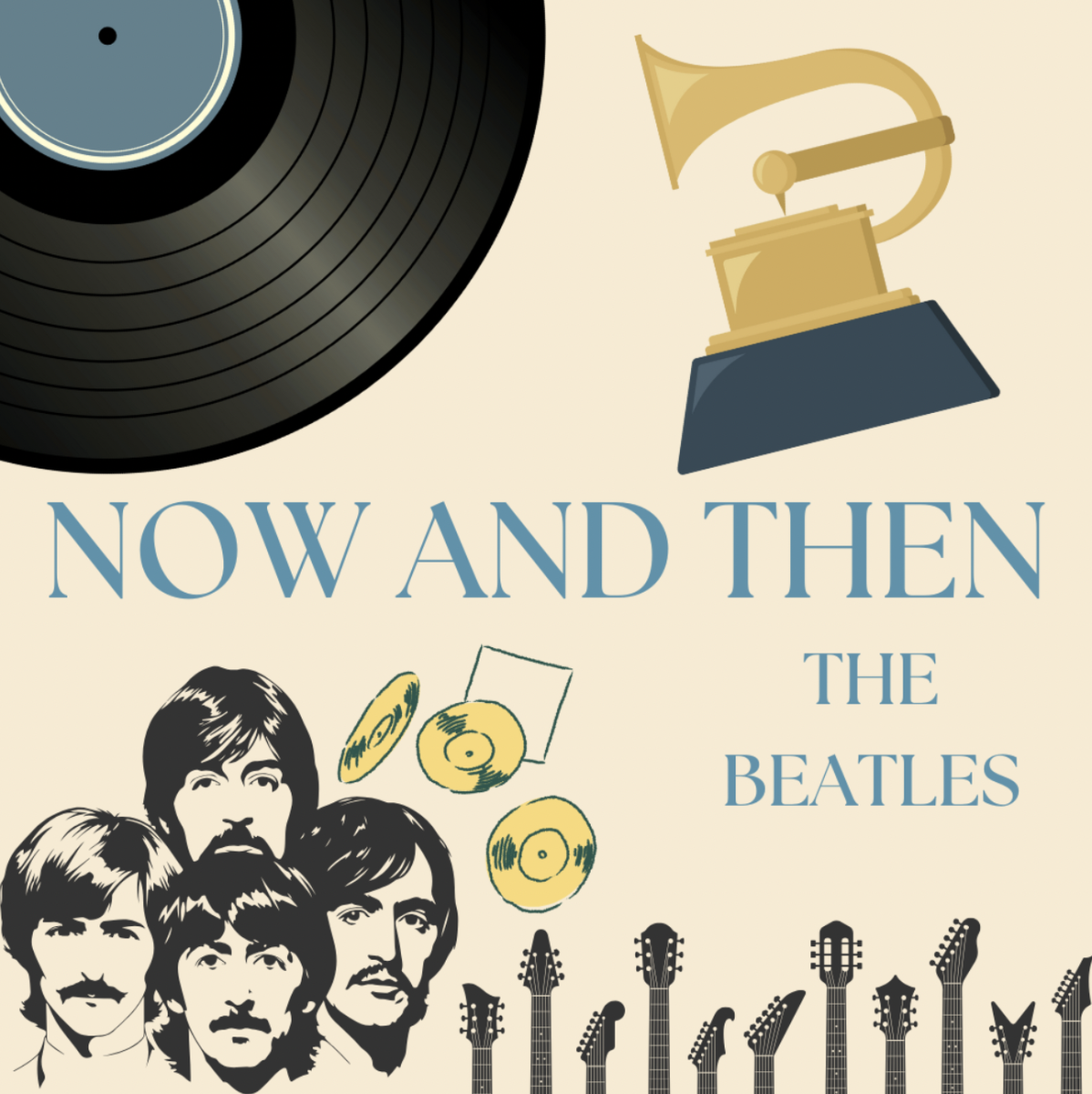Since 1959, the Annual Grammy Awards have been the biggest night in music, honoring memorable artists and their contributions to pop culture. While many changes have shaped the music industry over the past 67 years, the iconic gold-plated gramophone award has maintained its timeless significance. Throughout decades, the Grammys have recognized influential individuals and unforgettable music that carries us throughout life. Stepping forward, new artists, new music styles, and new techniques are welcomed. However, alongside the willingness to adapt to change comes the challenge of face-to-face encounters with AI.
On November 8, the 2025 Grammy nominations were released, revealing 5-8 nominees per category. With 94 categories, it was no surprise artists like Taylor Swift and Beyonce, received multiple nominations. Other names were a lot less expected. This year, 54 years after their split, The Beatles were nominated for two Grammys—Record of the Year and Best Rock Performance—for their latest release, Now and Then. Whether positive or negative, Beatlemania had plenty to say.
Now and Then by The Beatles was released on November 2, 2023, decades following the deaths of bandmates John Lennon and George Harrison. Dubbed as The Beatles final song, Now and Then tugged at the heartstrings of new and old fans alike. However, the revelation that AI-assisted in the song’s creation, left some people taken aback.
“I think it is unfair to potentially give the grammy nomination to a robot over people that not only wrote their music, but it made it too,” said Aarav Bommu (‘25).
In 1970 John Lennon personally wrote and recorded a five-minute piano demo of Now and Then on a tape recorder, but he never got the chance to fully complete the track before his death. Although Now and Then was revised in 1995, it was not until 2022 that it was rerecorded, mixing Paul McCartney’s vocals and Ringo Starr’s drumming with Lennon’s old demo, and snippets of Harrison’s guitar recordings. AI Technology made it possible to separate components of the old recordings and combine them smoothly with new recordings to bring to life Lennon’s vision decades later. With the use of AI, The Beatles were able to give the world one last gift.
“I think it really depends on how it’s used…A fully AI-generated song, I think is wrong. Just the same way that I think a fully AI generated test is wrong, none of that is organic,” said Daniel Klehamer, a science teacher at Cherry Hill East. “But I think the mixing process, when it comes to making a recording, is complicated. If it’s a situation, like this, where they are using [AI] to clean up the recordings then sure, do that. That’s just what the mixing process is. They do that anyway, they are just having AI do it.”
While some people see this as the perfect way to utilize AI in the music world, others fear it could pave the way for further technological advancements, ushering in AI-generated lyrics or completely AI-generated songs. Although, in this case, AI’s use is very minor, people worry it will soon be too hard to tell when AI crosses the line.
“It gets hairy because how much is too much,” said Klehamer. “How much of the song can be AI before it’s no longer an organic piece of art.”
While AI in the music industry remains a complex topic, most people agree it is inevitable as we step further into the future. Although AI was only used to enhance The Beatles’ original recordings, the future of technology in music remains uncertain. Regardless of whether Now and Then wins any grammys, music fans can Come Together to agree its mere creation proves the endless possibilities in the music world. The Beatles have always embraced creativity and innovation, only now- through Now and Then-are they reminding us of their brilliance and ability to connect generations through one simple song.


